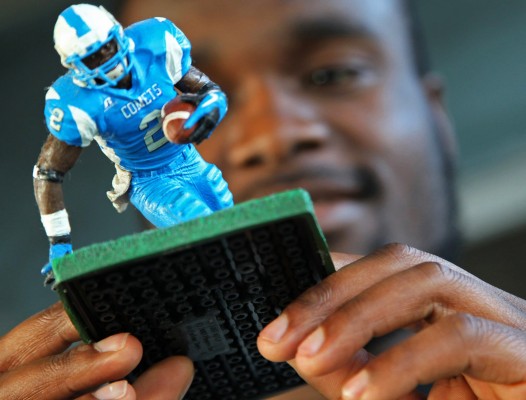College Athletes Should be Paid
April 16, 2014

Recent events such as the Northwestern football team attempting to unionize show that the NCAA will eventually not be able to treat student-athletes as unpaid labor, so what can it do to evolve?
For months, the Northwestern football team has been met with rebuke and confrontation as the students try to unionize and be seen as employees of the college. While they have been repeatedly turned away, the incident has made the debate about payment and benefits for college athletes, or the lack there of, all the more visible. So how long can a pyramid scheme, like the NCAA, that thrives on the compensation-less hard work and effort of young men and women sustain itself?
The NCAA is one of the most popular and profitable organizations on the planet. 18 million viewers tuned in to watch the men’s basketball championship game between University of Connecticut and the University of Kentucky on Monday, April 7. 26 million viewers watched the BCS National Football Championship between Florida State and Auburn last January. Overall, the organization has over $600 million in net assets, and shows no signs of its popularity dying anytime soon. However, even as the NCAA flourishes and universities profit, student athletes are not being compensated properly for their contributions.
While one may argue the value of sports in terms of cultural impact or necessity, one cannot dispute the monetary gain these events provide. Universities with thriving, nationally known sports programs make ludicrous amounts of money. However, that money is made on the backs of athletes who sacrifice their time and health with little to no recompense. With so much excess funding, colleges should be able to take a small piece of the pie to reimburse the players, so why won’t they?
The arguments against paying student athletes are becoming more and more antiquated. Doing something for the sake of tradition, even if that tradition doesn’t really make sense in modern society, is just illogical. Therefore, we shouldn’t continue to not pay student athletes, just because we haven’t ever regardless of history. Amateurism, in an age of YouTube mixtapes and magazines that profile high school prospects like Andrew Wiggins before they even step on a court, is no longer feasible.
Another argument is that athletes are paid in college through scholarship and an education that is more valuable than mere dollars and dimes. What many pundits fail to mention when saying this is that many, if not all student athletes, are either not allowed to have part time jobs or simply cannot have one due to the time constraints of practice, travelling or actual events. This includes walk-on athletes who are receiving no scholarship to be on the team, and athletes from less affluent neighborhoods whose families are not able to properly cover the costs of college, such as books and meal plans, that scholarships do not provide. So, in many ways, student athletes are more limited in terms of monetary gain than their peers. For example, as a student on an academic scholarship, I am able to have a part time job to supplement my financial costs that aren’t covered by my grant. However, my friend who runs track and field for a Division I university, Boston College, does not have that same luxury, because of so much time spent in preparation for and in actual competition. Both of us have scholarships because of our merit, we earned them, yet one of us is limited and not awarded the same opportunities because of receiving his benefits from a different channel. That is simply unfair, regardless of what the NCAA has to say.
There seems to be a solution to this dilemma that the NCAA has not discovered yet. If we treat sports as a business, with TV deals and sponsorship, why not treat student athletes as student workers? By making sports be seen as a work study program, students would be compensated for their hours in addition to their scholarships. In many ways, sports are work study programs. They are preparing athletes for jobs in their respective markets, whether as professional athletes or in any capacity that would require the teamwork, dedication and leadership need of a collegiate athlete. Coaches and athletic departments would be able to keep their athletes focused on the game and winning championships, because that would literally be the job of the students. Players are given more financial flexibility, which could stop incidents like Johnny Manziel allegedly signing autographs for cash, from happening. The only “losers” in this situation are the universities themselves who will have a slightly smaller profit margin. But, colleges should see us as students and not walking ATMs, right?
While this issue might not be resolved in the near future, at some point the NCAA will have no choice but to give in. It is not a tragedy or the death of college sports if student athletes start getting paid. It is simply an evolution and one that needs to be made sooner, rather than later.









